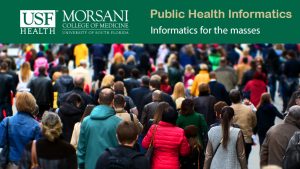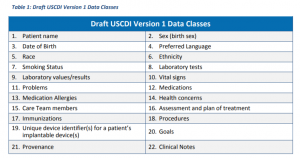As the launching pad in your journey toward a Master of Science in Health Informatics, you might suspect that a course named Introduction to Health Informatics is fairly straightforward. While this introductory course is indeed that, it does get into some pretty significant topics for the health informatics professional to consider.
The course is designed to focus on eight different areas of informatics over the 8-week session. It includes:
- An industry overview and introduction to laws that govern health informatics
- Overview of healthcare in the U.S.
- Overview of healthcare data practices
- Introduction to health information systems
- Exploration of patient engagement approaches and consumer health
- Discussion of disease management and quality improvement
- Analysis of patient safety issues and quality improvement efforts through informatics
- A look at the future of health informatics.
But aside from the content, Introduction to Health Informatics is the ideal course to introduce academic cohorts to the 100% online format and get the discussion boards going.
“I think the best part of the course is seeing them come in with all these diverse backgrounds and the amount of experience they have in the health field itself,” Christina Eldredge, professor of Introduction to Health Informatics, said. “They’re all interested in health informatics, of course, but they bring so much diversity in their experience that they really learn a lot from each other. My favorite part is kind of overseeing the discussions and seeing them teach each other a bit. I think it’s also unique because it reflects the interdisciplinary nature of health informatics.”
The course is designed for graduate students who wish to gain an understanding of the design, use and evaluation issues of health informatics application. All course material is presented in the context of modern health informatics so that after the course is completed, students can explain key concepts in health informatics as well as their origins and impact on modern healthcare delivery.
For Eldredge, the goal of the course also extends to helping professionals returning to education after some time away to find their footing in the online classroom. In addition to that, her work in career development and establishing health informatics competencies has fueled her efforts to tie professional development themes into the curriculum.
“At the beginning, I really thought that the goal of the course was an introduction to the field and examining career development within the field,” Eldredge said. “I have a real interest in career development because I serve on two committees for HIMSS and AMIA, and I thought that would be the goal for this course. But a lot of these students haven’t been in an academic environment for several years and this course is actually a great way to settle them back into that. Our goal is to help them get used to writing papers and taking courses again, not scare them off with grading and exams necessarily.”




